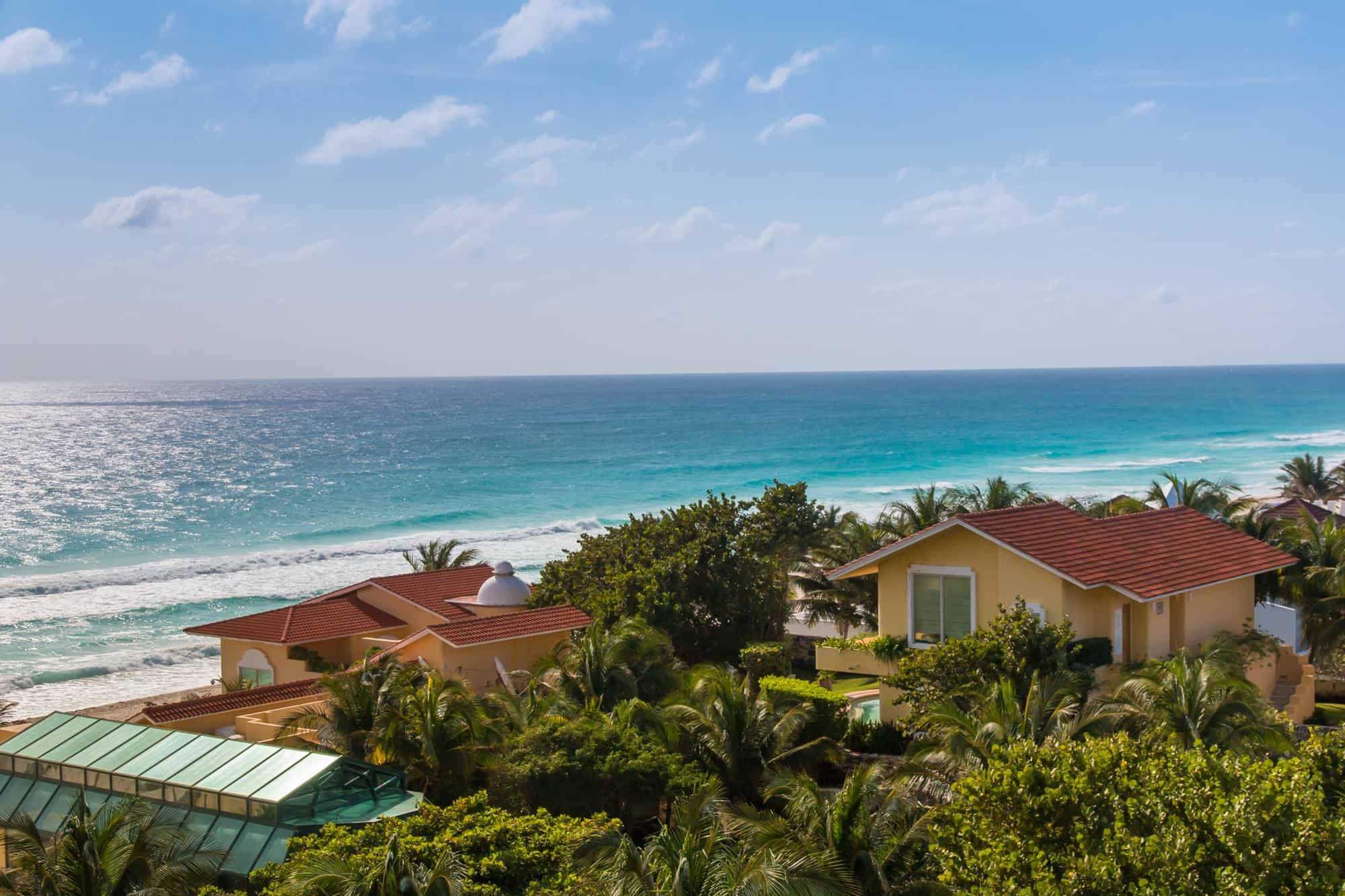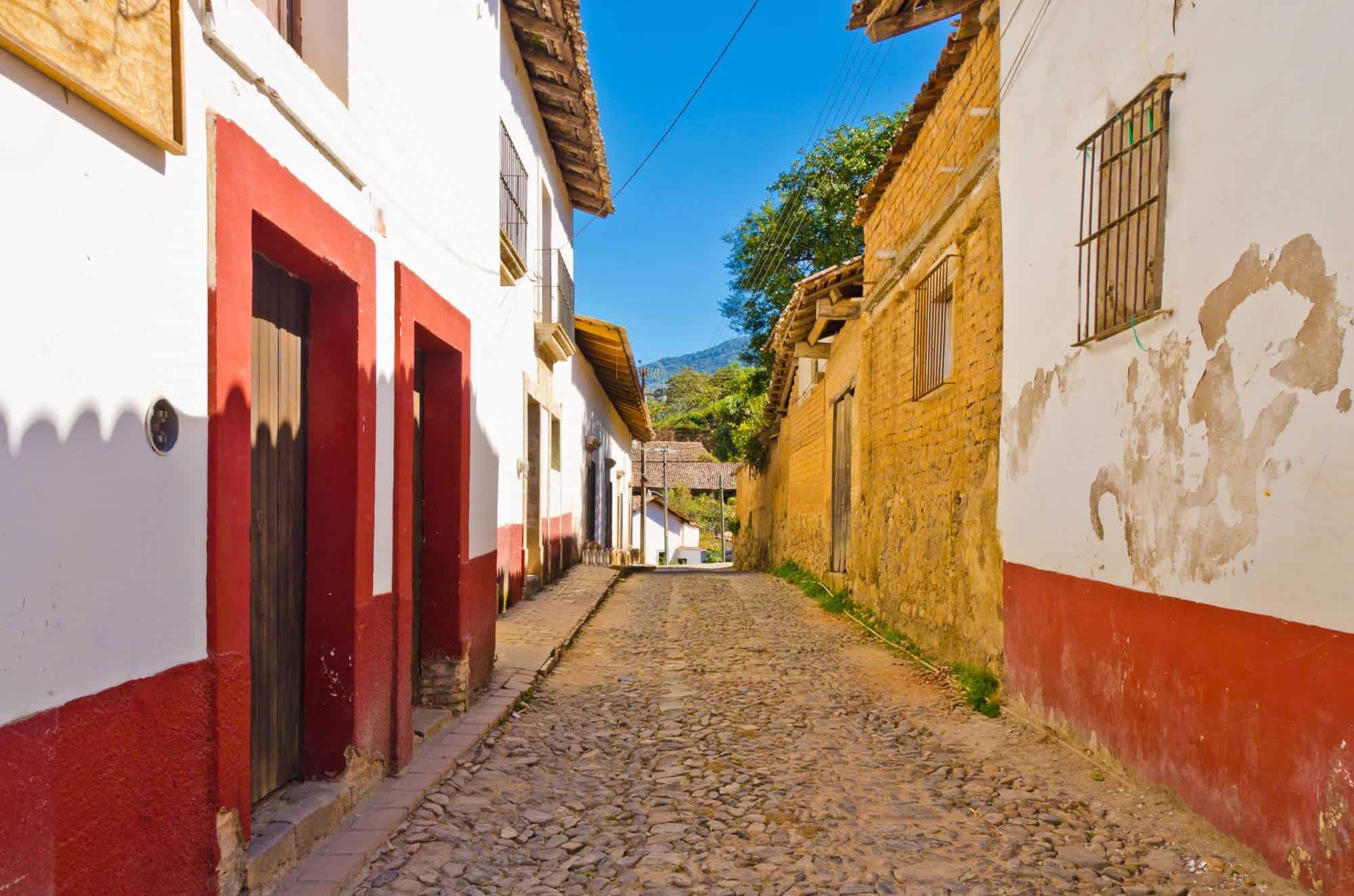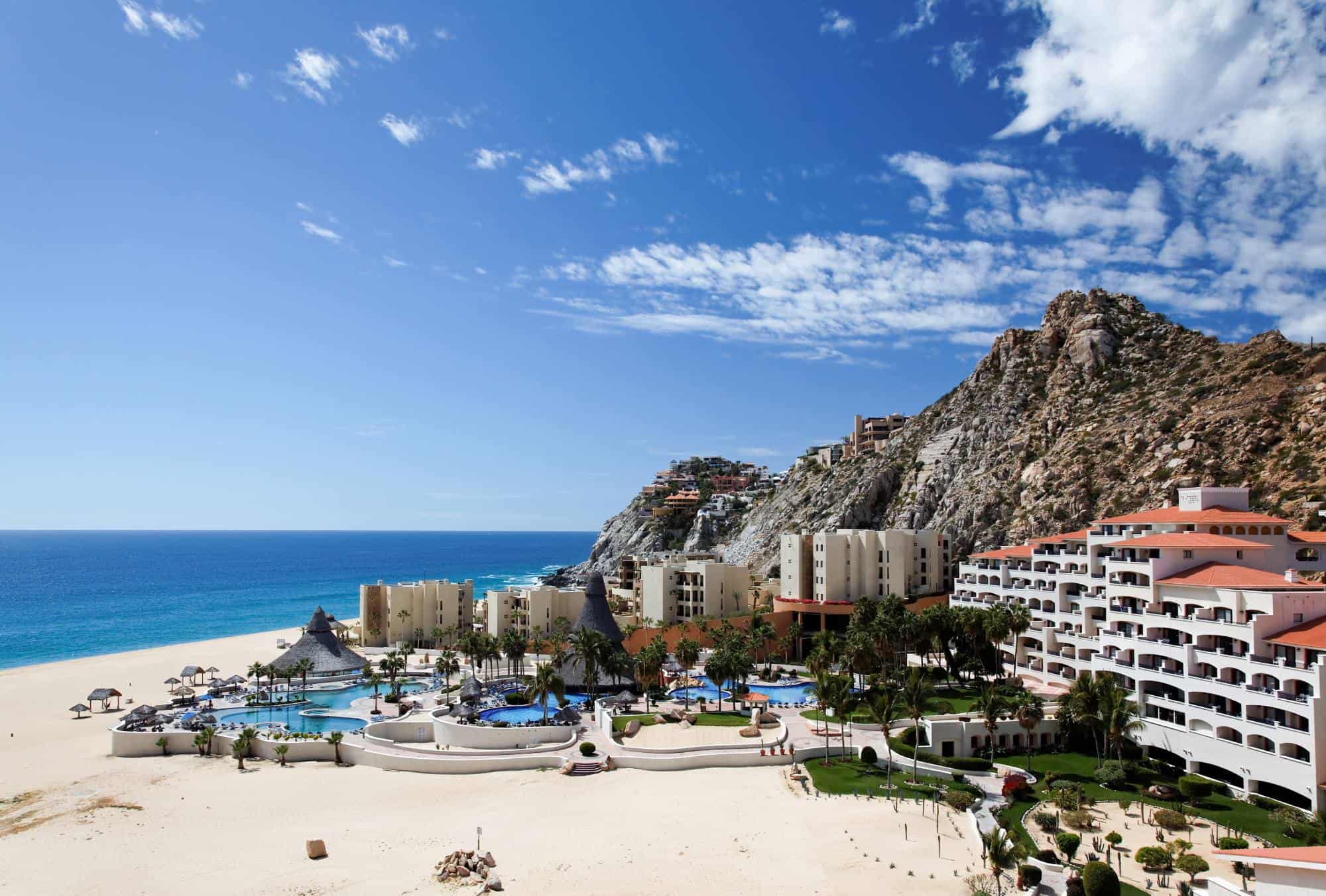This guide will point you in the right direction for various aspects of renting and buying property in Mexico, helping you to avoid costly mistakes and protect your interests.
Renting in Mexico
Renting is a very reasonable thing to do when you are new to the country. It helps you familiarise yourself with the location you have chosen and give it a reality test to decide whether it's right for you or not before you commit to buying.
In popular locations frequented by holidaymakers, long-term rental properties are harder to come by, but they are still available.
If your location preferences include places like Tulum, Playa del Carmen, and Cancun in Quintana Roo, Puerto Vallarta in Jalisco, and Nuevo Vallarta in Nayarit, finding something long-term may take more time and effort.
It might be worth booking a hotel or Airbnb for a few days and doing some deep exploring. Many residents would agree that these things are best done in person.
Secure Peace of Mind with Best-Value International Health Coverage
International Citizens Insurance provide free, no-obligation quotes from the leading international health insurance providers with plans tailored to meet your needs. Trusted by thousands of expats worldwide.
How much is it to rent a property in Mexico?
You will find that rental prices vary widely across the country.
Different locations, such as in the main city, beach vista, tourist location, a colonial city, or remote countryside, and the type of property, from a new-build condominium complex to a small rustic casita, will affect pricing.
The average price is around $240 USD per month, for which you will get a one-bedroom apartment with a basic kitchen and bathroom.
In Mexico City, the standard price is $487 USD. Condominium complexes in Puerto Vallarta or Cancun, for example, will attract a higher rental price as well as additional monthly maintenance fees.
Luxury beachfront homes can start with a monthly rental of $1,050 USD per month. The more expensive rentals will be in Los Cabos, Cancun, Riviera Maya, and Puerto Vallarta.
Economical rentals can be found in Puerto Escondido, Huatulco, Mazatlán, and less developed parts of Mexico.
If you are looking for a simplistic lifestyle that offers basic amenities, small casitas in Mexican neighborhoods are around $270 USD per month.
They can be a good base to explore some of the neighborhoods you may wish to buy a property later.
Utilities are inexpensive. However, in the hotter, more humid months, air conditioning can result in a high electricity bill.
Further inland properties are cheaper rent-wise. Electricity costs will also be cheaper due to reduced air conditioning needs in the cooler climate.
Searching online for rental properties in Mexico
Here is a list of the sites that can help you start searching for short-term and long-term rentals in Mexico.

Most popular real estate listings:
- www.Craigslist.com/Mexico
- www.inmuebles24.com
- https://www.longtermlettings.com/find/rentals/mexico/
- https://www.Propiedades.com
- https://www.AvisoOportuno.com
- https://www.point2homes.com/MX/Apartments-For-Rent.html
- https://century21mexico.com/
- https://farhomes.com/
It's worth checking the sites regularly for new listings.
If you ask around locally, you could get great recommendations on good living areas suitable to your needs and the available properties. Also, local supermarkets advertise rentals from private owners.
Local expat online forums can help in your search, and you can get on-the-ground guidance on various areas and recommendations for reputable real estate agents.
Should I rent furnished or unfurnished?
In Mexico, you will find a range of unfurnished, partly furnished, or fully furnished properties available for rent.
Unfurnished properties are a cheaper option, especially those that are built in the Mexican style.
They are often basic. The kitchen can literally be a countertop with a sink and portable ring cooker and fridge, which is not always supplied. Owners are very happy for you to paint and modify the property for them too.
The newer builds or condominiums generally have a fully fitted modern kitchen and a barbecue area outside, sometimes with a sink and Parrilla (grill) and all the mod-cons you would expect.
What types of property are there in Mexico?
- Apartments and condos (‘departamentos /condominios’), sometimes in gated communities.
- Casas situated on a plot of land.
- Countryside properties that can range from rustic casitas (bungalows) or Spanish-style casas situated on a golf course with added amenities of maintained gardens, a terrace rooftop, a swimming pool, or even overlooking the sea with monthly maintenance of the common areas.
- Older style properties. These can be a little dilapidated and challenging for you if you are not a DIY enthusiast.
Working with a real estate agent or a broker
Properties in Mexico are available for rent from a real estate agent or directly through the owner of the property. Realtors work closely with local landlords and can provide advice about which neighborhoods to choose and avoid.
A realtor may charge a commission fee to find a suitable rental, plus a possible ongoing fee to manage the rental.
One drawback for expats in Mexico has been that there were no regulations in place for real estate agents. However, this has changed somewhat now.
To check the credentials of a realtor, check the National Association of Realtors in Mexico, known as the AMPI (https://ampi.org/ ), and then you can search by geographical region.
It is important to note that not all real estate agents are required to be regulated so it is best to check first or rely on a recommendation from a local or ex-pat that lives in the area who has had experience with a particular real estate agent.
Guarantors and insurance
It’s normal for landlords to ask you to provide a third-party guarantor (fiador) or an insurance policy (fianza) to pay the rent in case you default.
Your guarantor must own a property in the same state where you are applying to rent. Your employer can also be your guarantor.
If you cannot find any guarantors, insurance is the way to go.
Documents required to rent a property in Mexico
The required documents depend on the landlord, owner, or real estate agent, but generally, you will need to be prepared to present the following:
- Proof of identity, such as passport
- Proof of residency status
- Proof of income
- Details of your guarantor or your insurance policy
We strongly advise opening a Mexican bank account which will save the hassle of heavy fees on foreign exchange or withdrawal from the ATM.
Rent payments can be transferred directly to the landlord, and utility bills can be paid online, avoiding long queues at the end of the month to pay in person.
Rental deposit
This is one month’s rent held as a deposit and must be stipulated within the contract so that one month’s notice can be given towards the end of the rental period.
Tenancy agreements in Mexico
The rental market in Mexico is not regulated. There is no standard contract as expected in the U.S. or the U.K. However, there is a civil code that specifies the rights and obligations of both the landlord and tenant.

Real estate agents do possess a generalized form of a standardized contract.
Any rental contract should be in English and Spanish; both are signed and must include the names and signatures of all the parties involved, a guarantor, and state the location and description of the property, usage of the property for residential use, and any other clauses such as a break clause for subletting.
Before signing the contract, check the landlord’s identity. Normally a copy of their identity document and yours, as well as listing the document number for all parties, will be within the contract.
Alternatively, the agent has power of attorney to let the property on behalf of the owner.
The advantage of the contract, which is uniquely drawn up, is that you can negotiate on its terms.
Nine things you need to do when renting to avoid potential problems
- If you do not know the language, make sure you have a good translator ready to help.
- Research online property sites. If visiting real estate companies in person, ensure that they are well known and regulated or recommended.
- Familiarize yourself with desired locations and neighborhoods to make sure they suit your needs.
- The time of year can be crucial as prices are higher in the high season and for longer rentals. The best time to find a rental is in the low season, May to October, as owners are more willing to negotiate a steady source of income and not have the stress of empty property in the low season.
- Find a real estate agent regulated by AMPI or a trusted one on recommendation by a friend, a local expat, or a native to the area.
- Check the credentials to ensure that the landlord is the owner of the property or the real estate agent has the power to rent the property.
- Check if utility bills are included or not.
- Check the internal structure of the property and point out any parts to be repaired or defects before renting so that they cannot be passed on to you as damage when vacating the property.
- Find out how to pay the rent via bank transfer.
Buying property in Mexico
All foreigners and international buyers, including Americans, can own property in Mexico with the same securities that Mexican citizens have. Buying property in Mexico can be straightforward, with reasonable research before entering into any commitment.
Some expats opt for buying a plot of land and then hiring an architect and building team to design their house. Now in vogue are prefabricated houses which are available from Canada and the U.S., pre-assembled and driven down by a lorry.
Properties of all types and descriptions exist in Mexico, from beachside villas to rustic casas in the countryside to gated communities of maintained condominium complexes.
Buying property in Mexico in a restricted zone
The Mexican Constitution of 1917 states that no foreign ownership was allowed in Mexico’s “restricted zone”(Zona Restringida). However, to allow foreign investment into the country, the Mexican government devised a solution to the restrictions.
Purchasing land within 50 kilometers (31 miles) of the coast or 100 kilometers of an international land border requires you to set up a bank trust known as a fideicomiso.

This is like a land trust in the United States. In layman's terms, a bank acts as the Trustee, and you are the beneficiary and grantor of the trust, so you have control over the purchase, sale, and management of the property.
Buying property in the restricted zone in Mexico is completely legal and 100% secure as long as you do it the right way.
Can foreigners own beachfront property in Mexico?
Coastal land within 50 km of the coast falls within the restricted zone in Mexico. As a foreigner, you can own a beachfront property as long as you enter into a special partnership with a Mexican bank. The bank will hold the title to your property in renewable 50-year trusts.
Can you buy Ejido land in Mexico?
You cannot purchase land that is designated agricultural land, known as ‘ejido’.
This land was granted by the government to indigenous communities in Mexico to work the land and can be an enticing prospect as a bargain.
However, it is not your land on ‘purchase’ and can only be legally bought after the approval of 100% of the community members and separating out your parcel of land from that of the common 'ejido' land.
It is a complicated process that can confuse expats, and a bad purchase deal can result.
The essential steps of the property buying process in Mexico
- Make a verbal offer on the property and agree on a price with the seller.
- Hire a bilingual notary who will oversee the whole process.
- It might be a good idea to obtain Title Insurance. In addition to all the notary's work, a title insurance company will investigate the title even further and if there are doubts, advise you not to buy the property.
- If you feel you need more legal support, find a licensed Mexican attorney to represent you during a real estate transaction.
- Sign the Sales Contract (Contrato de Compraventa). This sets out the price and specific terms and conditions for the sale.
- Apart from a new property, technically speaking, there are no official building standards required for a property in Mexico. However, you can hire an independent surveyor at this stage to undertake a thorough inspection before going ahead. If you do so, make sure that surveying and its results are set up as conditions in Step 3.
- Pay a deposit which is generally 5- 10 % of the sales price.
- If a property is in The Restricted Zone (Zona Restrigida) set up the land trust (Fideicomiso)
- Complete the Purchase at The Foreign Secretary’s Office so that Mexican law will prevail
- The notary will do a title search and review (Avaluo) on the property and set up the title.
- Sign the title deed for the property (Escritura) and pay the closing payment. This will be the title document for your property.
- Within three months, the details will be registered with the property registry
- Closing costs are roughly 5% of the purchase price and consist of a 1.5% notary fee, 2% tax, and the set-up fees for the land trust or mortgage fees in the case of a mortgage.
Buying property in Mexico through a corporation
This is another way for a foreigner to acquire Mexican real estate. The advantages are considerable.
A Mexican Corporation can buy property anywhere in Mexico, including real estate within the restricted zone 100 km from the border or 50 km from the coast.
You can use the acquired property for renting or development. As a corporation, you can buy as many properties as you wish.
It takes just two weeks to register a corporation in Mexico, and it can be 100% owned by foreigners; no local partners are required.
Building your own property in Mexico
It is perfectly viable to buy a plot of land and build your own property in Mexico. However, it's not a popular way for expats to acquire their Mexican home. The bureaucracy, not knowing the local ways, and the language barrier are the main reasons.
The main benefit of building your own property is the cost. A ready-built house sale price will be 25-30% higher than the basic build cost, plus you have to pay taxes on the combined value of the property and land rather than just the land.
When buying a plot of land, make sure water, sewer, and electrical connections are in place. If not, it can be very expensive to connect the utilities.
It is also important to check the local requirements for new builds. In some areas, there are height limits and other build restrictions that you need to be aware of.
Buying property in Mexico - summary
As a foreigner, you can buy any property in Mexico. The majority of the purchases done by expats go without any problems.
However, it is essential to be prepared for quite a bit of the paperwork that comes with buying property in Mexico.
Correct legal representation is of utmost importance, and, of course, understanding the conditions and the legal status of the property is crucial to make sure your purchase is successful.
You might find useful:
Secure Peace of Mind with Best-Value International Health Coverage
International Citizens Insurance provide free, no-obligation quotes from the leading international health insurance providers with plans tailored to meet your needs. Trusted by thousands of expats worldwide.




